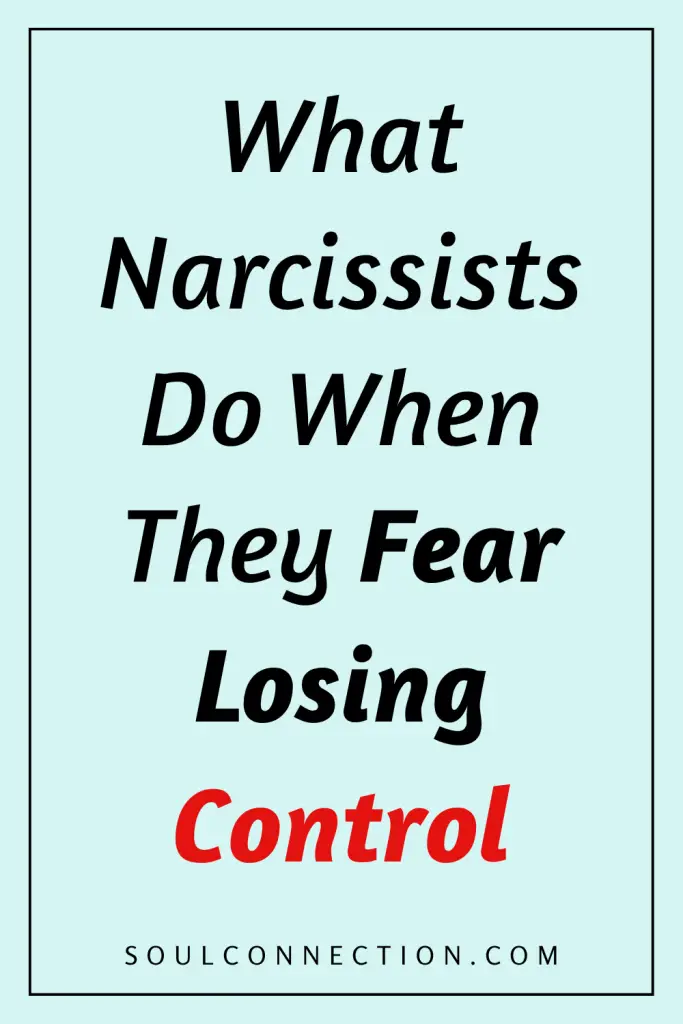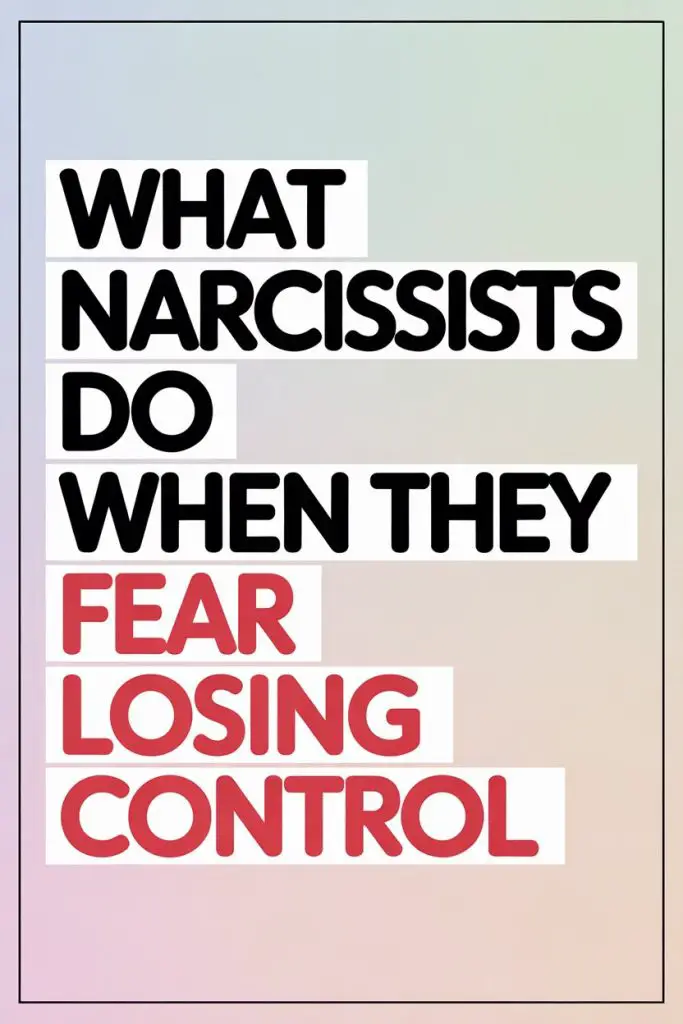If you suspect you’re in the crosshairs of a narcissist’s panic, you probably feel it: the tension, the sudden shifts in mood, the feeling you’re tap-dancing on eggshells while juggling sharp knives.
When narcissists fear losing control, they don’t simply let go and wish you well. No, they turn on the theatrics, dust off their best manipulation tactics, and crank the drama dial up to eleven.
Keen to know what actually happens when the power dynamic starts slipping through their fingers? Buckle up. Here’s what’s really going on—and what you can do about it.
Charm Offensive Goes Into Overdrive
When narcissists sense the leash slipping, they often become extra sweet, attentive, and generous. Suddenly, they remember your birthday (and half your extended family’s) and start doing the dishes without being asked.
This isn’t personal growth—it’s panic with a side of flattery.
Their motive? Get you back into their orbit, nice and compliant. If you’ve ever wondered why someone can flip from cold to caring overnight, now you know: they’re hoping kindness will reel you in again.
But here’s the trick—don’t mistake this performance for real change. Wait it out. The curtain always drops eventually.
Gaslighting Finds a New Gear
Narcissists can gaslight with the artistry of a Shakespearean actor—except with more confusion and less poetry. When their control is threatened, this ramps up.
Suddenly, you’re “remembering things wrong,” “too sensitive,” or “overreacting.” If they can twist your reality, they can keep you doubting yourself and, crucially, relying on them for a sense of what’s true.
Ever had someone rewrite a whole conversation you know happened differently? That’s not a faulty memory—it’s a deliberate attempt to cloud your judgment and regain the upper hand.
To counter this, jot things down. Keep texts, emails, or little notes to yourself. Proof is your friend when someone’s trying to turn your mind into a game of Twister.
Guilt Trips and Sob Stories Multiply
Suddenly, they’re the world’s saddest puppy. The feigned vulnerability bursts forth: “How could you do this after everything I’ve done for you?” “You’re abandoning me!” “No one else will ever love me the way you do.”
Narcissists are masters at flipping the script; now you’re the villain in their tragic tale. The goal is always the same: to make you question your actions and feel responsible for their feelings.
Remind yourself that adults are responsible for their own emotions. You don’t owe them your happiness just to avoid their pouty faces (or epic meltdowns).
Rage and Intimidation Make a Cameo
When honey doesn’t work, vinegar makes an appearance. Narcissistic rage is legendary for good reason: it’s big, it’s dramatic, and it’s designed to scare you straight back into compliance.
This might look like shouting, slamming doors, stonewalling, or sharp sarcasm aimed to wound. Control is at stake, and they’ll fight dirty to snatch it back.
If you notice this escalation, focus on staying calm and non-reactive. They feed off drama and emotional fireworks. Picture yourself as Switzerland—neutral, unbothered, and absolutely not joining the shouting match.
Smear Campaigns and Flying Monkeys
If manipulation and intimidation don’t work, narcissists may try to destroy your reputation—classic “if I can’t have you, nobody will.” They’ll paint you as unstable, untrustworthy, or cruel to friends, family, or colleagues.
Sometimes, they’ll even recruit others (the infamous “flying monkeys”) to do their dirty work.
Horrible, yes. But it’s all about controlling the narrative. If they can’t control you directly, they’ll try to control how others see you.
Stay classy. Resist the urge to fight fire with fire. The truth has legs—let it run its course.
Withholding Affection or Attention
Prepare for the cold shoulder, also known as the “emotional deep freeze.” If you’re not playing by their rules, they might punish you by withdrawing love, approval, or attention.
It’s the grown-up version of a toddler holding their breath until you give in.
Resist the urge to chase their affection. You deserve warmth that doesn’t come with a bill.
Triangulation: Bringing in a Third Party
Suddenly, you’re hearing about someone new—an ex, a coworker, or a mysterious friend who’s “so much easier to talk to.” Triangulation is when a narcissist brings in another party to stoke jealousy, insecurity, or competition.
The message is clear: “Others want me, so you’d better get in line or be replaced.” It’s a power move, pure and simple.
Don’t take the bait. If someone’s loyalty is for sale, you’re better off shopping elsewhere.
Boundary Bulldozing
When a narcissist feels control slipping, boundaries become more like polite suggestions—easily ignored. Expect calls at odd hours, questions they shouldn’t ask, or pushback against your need for space.
This isn’t forgetfulness. It’s a strategic assault on your independence, designed to erode your resolve.
Fortify your boundaries, keep them simple, and don’t get sucked into explaining yourself. “No” is a complete sentence.
Future Faking
Plans for a dream holiday, promises of therapy, magical relationship milestones—suddenly, they’re singing the praises of a perfect future together.
This is classic future faking: talking up big plans to keep you hooked, with zero intention of delivering.
It’s emotional clickbait. If you feel like you’re being sold a fairy tale every time you set a boundary, take a step back and ask: has anything actually changed, or is this just another tall tale?
Wait for actions, not words.
Mirroring Your Emotions
When direct tactics stumble, narcissists may try to hijack your emotional state. If you’re sad, they’re devastated. If you’re angry, they’re suddenly furious.
They echo your feelings, hoping to create a false sense of connection—or to throw you off-balance and keep you guessing.
It’s not empathy; it’s a tool. Once again, the aim is to keep you from gaining enough distance to break free.
Keep track of your feelings and check if they’re really your own, or if someone else’s shadow is looming nearby.
Playing the Victim Card
Few things are as dramatic as a narcissist who’s suddenly the world’s most misunderstood soul. You’re presented with their suffering on a silver platter: childhood wounds, unfair life circumstances, or the seven people before you who “ruined” them.
If you’re a natural caretaker, this hits right in the feels. They’re counting on your empathy to override your common sense and keep you on their leash.
Empathy is wonderful, but you aren’t a rehabilitation center. You can care about someone’s pain without sacrificing your own wellbeing.
Love Bombing Reloaded
Expect a return to the honeymoon phase. Grand declarations, unexpected gifts, heart-melting texts—they’ll flood you with attention in hopes of dizzying you right back into their grasp.
It’s tempting to believe, especially if things have been rocky. But love bombing is a cycle, not a solution. True change is slow, steady, and never accompanied by a marching band.
Take your time. Don’t cash in on promises that come with confetti but no substance.
Rewriting History
Suddenly, everything that went wrong in the relationship is your fault—or never happened at all. Narcissists are Olympic-level history rewriters when the narrative threatens their sense of control.
You’ll hear: “I never said that.” Or, “You always blow things out of proportion.” Or even, “You’re the one who’s controlling.” If they can muddy the waters, you’ll question your own memories—and stick around longer, hoping for clarity.
Back yourself. Your memories matter, even if someone else tries to paint over them.
Disappearing Acts and Silent Treatment
When all else fails, expect radio silence. Narcissists may vanish, sometimes for days, then reappear like nothing happened.
The silent treatment is a last-ditch grab for power: if they’re not talking to you, maybe you’ll work harder for their attention.
Instead, use the silence to breathe. No need to chase. Let them stew in their own echo chamber.
Weaponizing Your Weaknesses
Ever shared a secret or vulnerability with a narcissist? When they’re desperate, it’s fair game. They’ll use your insecurities as ammunition, hoping to wound you just enough so you’ll fall back in line.
If you notice your private fears being thrown back in your face, recognize it for what it is: a tactic, not an accident.
Protect your soft spots. Surround yourself with people who lift you up, not those who dig for ammo.
What To Do When You Spot The Patterns
If you’ve recognized these tactics in someone you love (or used to love), it’s normal to feel a mix of anger, relief, and a dash of “Why did I put up with that?” Don’t beat yourself up.
Narcissists are cunning, and their moves are designed to sweep even the savviest among us off our feet—and sometimes straight onto a rollercoaster.
Here’s what can help when you notice the control games:
- Stick to your boundaries. Simple, clear, and consistent is best.
- Reach out to trusted friends or a mental health professional. You don’t have to figure this out alone.
- Document what’s happening. A journal or a saved thread of texts can help when gaslighting ramps up.
- Avoid JADE (Justify, Argue, Defend, Explain). Keep it brief and non-reactive.
- Prioritize self-care. Long walks, silly movies, or time with people who make you laugh can be surprisingly restorative.
You deserve relationships that are safe, supportive, and drama-free—at least as much as real life allows.
Keeping Your Power
Narcissists don’t surrender control quietly. When fear creeps in, expect fireworks—some dazzling, some dangerous.
The key isn’t to outmaneuver them at their own game, but to step off the board entirely.
Hold tight to your boundaries, trust your intuition, and remember: healthy love doesn’t require you to shrink, twist, or tiptoe.
After all, the best way to win at a rigged game? Refuse to play.


